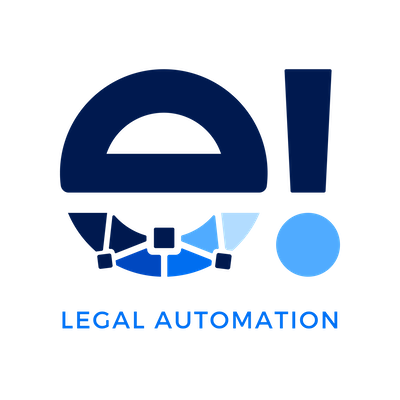Revolutionizing Dispute Resolution: Embracing AI and No-Code Tools
Dispute resolution, traditionally a complex and time-consuming process, is being revolutionized by the advent of AI and no-code technologies. Firstly, AI is transforming this field with its ability to analyse vast data sets. It uncovers patterns and predicts outcomes with remarkable accuracy. This not only streamlines the resolution process but also enhances the quality of decisions, making them more data-driven and informed.
Moreover, no-code platforms are greatly influencing the methods legal experts use for resolving conflicts. By enabling the creation of custom solutions without deep technical expertise, these tools facilitate the automation of routine tasks, efficient case management, and smoother communication among parties. Consequently, they are making dispute resolution more accessible and adaptable to specific needs.
Furthermore, the synergy between AI and no-code tools is leading to a more efficient, transparent, and user-friendly approach to dispute resolution. This integration marks a significant advancement in the legal field, heralding a new era of accessible and data-driven conflict resolution methods.
AI in Dispute Resolution: A Game-Changer
Artificial Intelligence (AI) is significantly altering the landscape of dispute resolution, introducing efficiencies and insights that were previously unattainable. By leveraging AI, legal professionals are now able to predict case outcomes with a higher degree of accuracy, strategize more effectively, and streamline the entire dispute resolution process.
– Predictive Analytics and Strategic Decision-Making
One of the key ways AI is making an impact is through predictive analytics. AI algorithms can analyze historical case data, identify trends and precedents, and predict likely outcomes of current cases. This allows lawyers and arbitrators to make more informed decisions, assess risks more accurately, and provide better guidance to clients. For instance, AI can evaluate the effectiveness of various negotiation strategies in past cases, helping mediators choose the most suitable approach for current disputes.
Furthermore, AI is enhancing the preparation and presentation of cases. Through natural language processing, AI tools can sift through vast quantities of legal documents and extract relevant information, saving hours of manual work. This capability is particularly valuable in complex cases involving large amounts of evidence or extensive legal precedents.
– Enhancing Communication and Streamlining Negotiations
AI is also revolutionizing communication and negotiation in dispute resolution. With advanced chatbots and virtual assistants, parties can engage in preliminary negotiations or information gathering before formal proceedings begin. These AI-driven tools can facilitate initial discussions, set agendas, and even suggest potential areas of compromise based on previous successful resolutions.
Additionally, AI is contributing to the development of more sophisticated Online Dispute Resolution (ODR) platforms. These platforms utilize AI to facilitate negotiations, mediations, and even arbitrations online, making dispute resolution more accessible, especially in situations where face-to-face interactions are not feasible.
In essence, AI is not just a tool but a strategic partner in dispute resolution that offers insights and efficiencies that transform traditional practices. As AI technology continues to evolve, its role in dispute resolution is expected to grow, leading to more innovative, effective, and equitable resolution of conflicts.

The Synergy of AI and No-Code Tools in Dispute Resolution
The fusion of AI and no-code tools is particularly transformative in the sphere of dispute resolution. AI, with its advanced data analysis and predictive capabilities, offers profound insights into conflict patterns and resolution strategies. Therefore, it is aiding mediators and arbitrators in their decision-making processes.
No-code tools, on the other hand, bring unparalleled flexibility and user-friendliness to the implementation of these AI solutions. Legal professionals, even those with minimal technical expertise, can utilize these platforms to develop customized applications for case tracking, evidence management, and communication with parties involved in a dispute. This not only streamlines the resolution process but also makes it more transparent and accessible to all stakeholders.
No-code platforms facilitate greater client engagement. Legal professionals can design client portals where clients can view the status of their cases, submit documents, and receive updates. This not only improves transparency but also boosts client satisfaction. Furthermore, no-code tools are essential in adapting to the evolving nature of dispute resolution. As disputes become more complex and varied, the ability to quickly create and modify applications to meet specific case requirements becomes invaluable. This agility ensures that legal practitioners can respond effectively to new challenges as they arise.
Together, AI and no-code tools are redefining dispute resolution by automating and optimizing various aspects of the process. From generating settlement agreements based on AI predictions to facilitating virtual mediation sessions through user-friendly applications, the possibilities are vast. This synergy not only accelerates the resolution process but also enhances the quality of outcomes. This helps to ensure fairer and more informed resolutions.
Shaping the Future of Dispute Resolution with AI Tools
Looking ahead, AI and no-code tools are reshaping dispute resolution, not as passing trends, but as key drivers of efficiency, accuracy, and accessibility. These technologies mark the start of a new era in legal processes.
AI’s contribution to conflict resolution is particularly noteworthy. With its advanced analytics and predictive power, AI is becoming an essential tool for conflict management. It enhances human judgment with deeper insights, leading to quicker, fairer, and data-driven resolutions. As AI evolves, we can anticipate even more sophisticated uses, further boosting technology’s impact on legal decisions.
No-code tools allow legal professionals to leverage AI’s benefits without deep technical expertise. This opens up innovation and agility, enabling tailored solutions to each dispute’s unique challenges. With the growing integration of these tools in legal practices, they promise a more dynamic, responsive approach to dispute resolution.
This transformation is making legal processes more efficient, transparent, and accessible, marking a significant leap in achieving timely and fair justice. Embracing these technologies, the future of dispute resolution appears brighter and more promising than ever.






